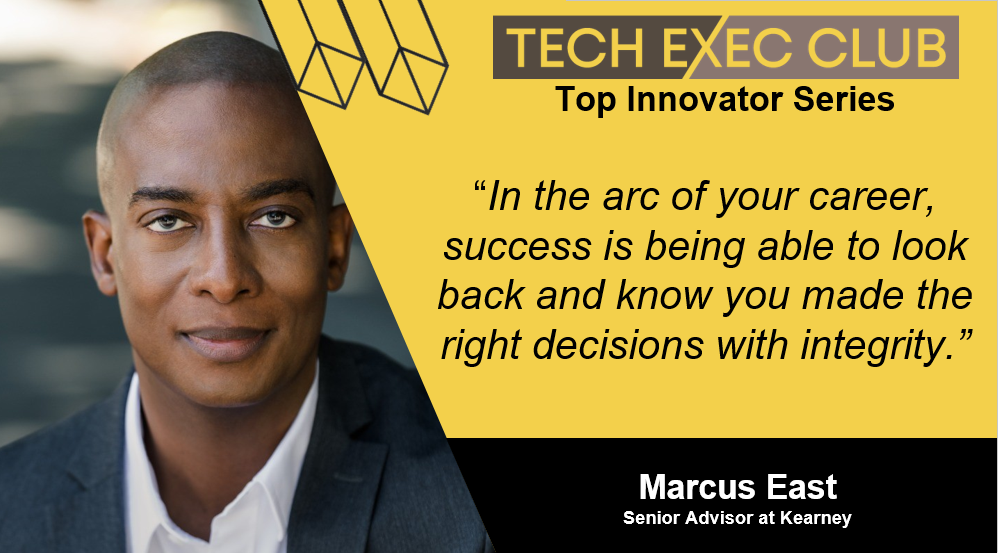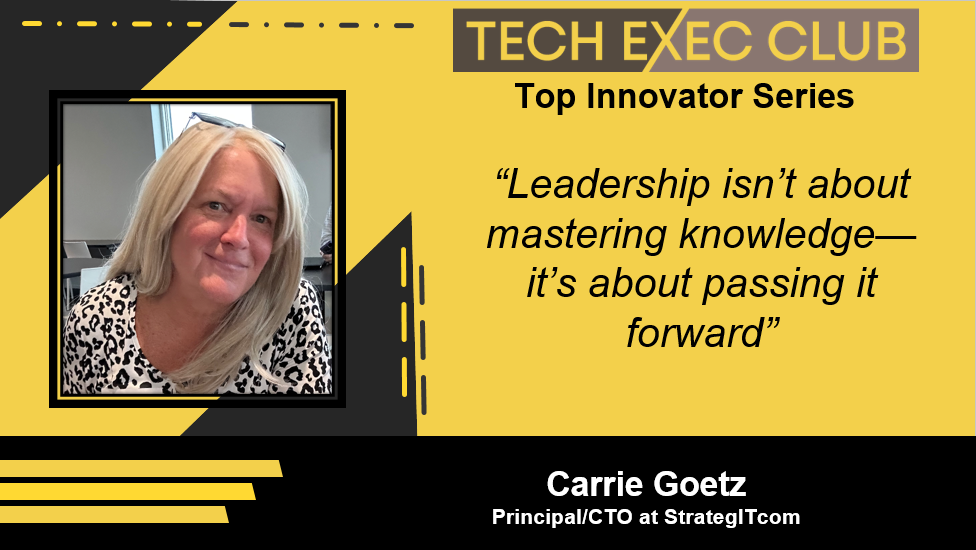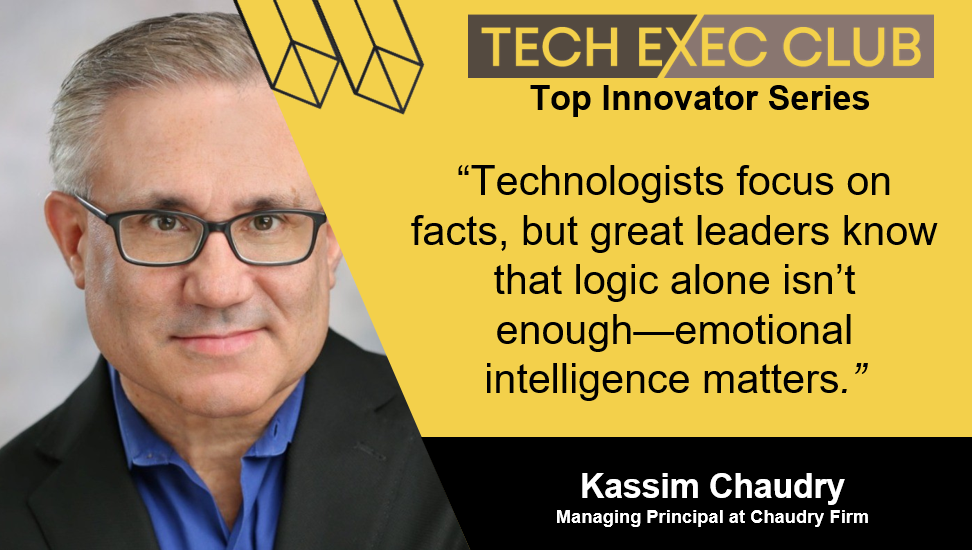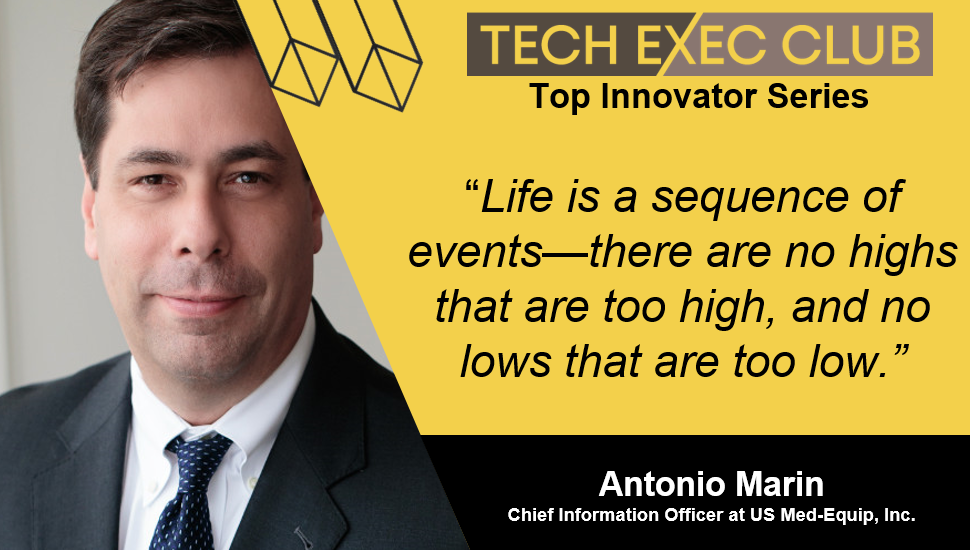When Marcus East walked into IBM thirty years ago as a fresh graduate in an oversized pinstripe suit, he could not have imagined the journey ahead. Today, as one of the most respected voices in tech leadership, his career spans global giants like IBM, Apple, Google, and T-Mobile, as well as a unique perspective gained from working in organizations disrupted by the technologies these companies pioneered. In a candid conversation with Josef Martens, East shares the principles and experiences that have shaped his leadership philosophy, including the importance of generosity, the challenges of balancing integrity with corporate success, and the next level of his career as a leader and mentor.
Throughout the interview, East’s humility shines as he credits his mentors, reflects on his lessons, and discusses his vision for leadership development in the evolving digital age. This article captures the essence of a leader who believes that success lies in empowering others and maintaining integrity, even in the most challenging environments.
The Transformative Power of Mentorship
For Marcus East, mentorship has been more than a guiding light—the foundation of his success. He vividly recalls his early days at IBM, not just because it was his first significant role but because of the extraordinary leaders who took him under their wing. “People like John Tadman, Jeff Henderson, and Jeff Wild invested their time and energy into my development,” East reflects. What made their mentorship unique was their expertise and genuine generosity in exposing him to opportunities far beyond his years.
As a fresh-faced 22-year-old, East found himself in situations he never imagined. He assisted senior executives with critical presentations, sat in on high-level strategy discussions, and observed how seasoned leaders made decisions under pressure. “They identified something in me early on—potential leadership qualities—and created a personal development program just for me,” he says.
The lessons he absorbed were invaluable. “They showed me that leadership is not about dictating—it’s about supporting people, being gracious, and creating an environment where others can thrive.” Their servant-leadership approach shaped East’s philosophy, teaching him to lead with humility and to focus on empowering others. Today, East passes on this mentorship model, mentoring younger leaders like he was mentored. He emphasizes, “You can’t underestimate the power of having generous, humble leaders in your corner. It can define your entire career.”
The Importance of Proactively Finding Exceptional Leaders
One of the key lessons Marcus East has learned over his career is the importance of surrounding yourself with exceptional leaders. He firmly believes that top-performing companies like IBM, Apple, and Google consistently attract the best minds, and working in these environments provides unparalleled growth opportunities. “In those high-performing organizations, leadership is often more of a meritocracy,” East explains. “It’s driven by skills and innovation, as opposed to legacy companies where leadership can be tied to tenure or political connections.”
However, finding great leaders isn’t just about landing a job at a top company—it’s also about taking the initiative to connect with and learn from them. East made it a point at Google to seek out the company’s senior leaders during his first few months. “I spent time looking through the directory, researching people whose expertise I admired, and reaching out to them,” he shares. While it might feel intimidating, East discovered that many senior leaders were surprisingly generous with their time. “Those conversations built relationships and gave me insights that helped shape my career.”
His advice to aspiring leaders is simple: Be proactive. “Put yourself in environments where great leaders exist, and don’t hesitate to connect with them. It’s not just about observing them from afar—learning directly from their experience.”
Navigating the Integrity vs. Success Dilemma
Corporate America is often a battlefield of competing interests, and Marcus East has confronted one of its toughest challenges: staying true to his integrity while pursuing professional success. “To maximize your success as an executive, you sometimes have to compromise your ideals,” he says. But for East, there are limits to how far he’s willing to go. “I’ll always respect the individual. I’ll always respect the human aspect. I’m just not willing to be ruthless.”
East acknowledges that this mindset hasn’t always been easy to maintain. He recalls moments when his refusal to prioritize numbers over people put him at odds with corporate cultures that rewarded more ruthless behavior. Yet, he remains steadfast. “One of my mentors told me that to be a great executive, you must be prepared to be fired if it means making the right decision. That advice has stuck with me.”
East doesn’t shy away from admiring those who can completely separate personal emotions from business decisions, but he knows it’s not a path he can take. “I see people who can focus entirely on numbers and strategy without worrying about the impact on individuals, and I admire that objectivity. But I also know it’s not who I am.” His leadership is committed to humanity, even at a cost. “Success without integrity is hollow. I’ve accepted that staying true to my values might limit my success in certain environments, but it allows me to sleep at night.”
Balancing Technology Expertise with Commercial Strategy
As a technologist, Marcus East has always been passionate about innovation. But over the years, he’s understood that being a great tech leader requires more than technical expertise. “As a tech leader, you’re not just building technology—you’re driving the company’s commercial performance,” East explains. That means aligning technical decisions with broader business objectives and developing a deep understanding of commercial strategy.
East credits much of his growth in this area to his time at Apple, where he was part of Information Systems & Technology (IS&T) led by legendary CIO Niall O’Connor for over two decades. “We used to joke that he was Apple’s top salesperson,” East recalls with a smile. The reason? O’Connor understood that technology wasn’t an isolated function but a core driver of the company’s commercial success. “He spent as much time with sales leaders as with engineers, ensuring Apple’s technology empowered the business.”
This lesson has stayed with East throughout his career. At T-Mobile, East took on responsibilities that extended far beyond technology. As the chief digital officer, he recently managed the company’s digital profit-and-loss (P&L) and grew the digital ‘share of enterprise.’ “I had to think about how every digital decision impacted the bottom line,” he says. This experience reinforced his belief that commercial understanding is critical for any tech leader. “I’m always looking for ways to deepen my P&L exposure and align my work more closely with business goals. It’s an area where I want to continue growing.”
Evolving into a Strategic Advisor
As Marcus East looks to the future, his aspirations shift from tactical execution to high-level strategy. He envisions himself stepping into the role of a trusted strategic advisor, offering guidance to organizations and mentoring the next generation of leaders. “I want to become the kind of leader organizations can rely on for strategic guidance,” East says. “It’s about moving beyond the day-to-day and thinking holistically about long-term success.”
One way East is realizing this vision is through board memberships. Currently, he serves on several boards, finding these roles both fulfilling and impactful. “Board positions allow me to contribute my experience at a strategic level while also helping to shape the next wave of leaders,” he explains. For East, this transition represents a natural evolution in his career—a way to leverage decades of experience to create a lasting legacy.
East also hopes to inspire other technologists to think more strategically. “One of the criticisms of technologists is that they can be too tactical, too focused on the projects at hand,” he notes. “I want to be the leader who bridges the gap between technology and strategy, balancing all the moving parts to drive long-term success.”
Ultimately, East’s vision for his next chapter is grounded in service for organizations and individuals. “I see myself as an elder statesman of leadership, someone who can offer perspective, guidance, and support to those navigating the challenges of modern business. It’s not about what I accomplish next but how I help others succeed.”
Marcus East’s leadership journey offers invaluable lessons for professionals at all stages of their careers. Whether you’re an aspiring leader, a seasoned executive, or somewhere in between, here’s how you can apply his wisdom to your journey:
1. Actively Seek Mentors: Identify leaders whose expertise and values align with your aspirations. Don’t wait for mentorship to come to you—reach out and express genuine interest in learning from them. Build long-term relationships by staying connected, even as your career progresses.
2. Place Yourself in High-Performing Environments: Target organizations known for innovation, strong leadership, and a culture of excellence. Once inside, immerse yourself in the company’s culture and seek opportunities to engage with its top leaders. Be strategic in selecting roles that align with your long-term goals.
3. Stay True to Your Values: Define your non-negotiable values early in your career and let them guide your decisions. Be prepared to make courageous choices, even if they come with risks. Remember Marcus’s mentor’s advice: “Be prepared to be fired if it means making the right decision.”
4. Develop Commercial Acumen: Gain exposure to profit-and-loss (P&L) responsibilities and understand the financial impact of your decisions. Learn from leaders who successfully bridge the gap between technology and business strategy, as Marcus did at Apple and T-Mobile. Take courses or pursue mentorship to deepen your understanding of business fundamentals.
5. Think Strategically About Leadership: Focus on developing a broader perspective of your organization’s goals and challenges. Seek board roles or opportunities to contribute to high-level strategy discussions. Strive to be the leader who balances decision-making’s technical, human, and commercial aspects.
6. Be Proactive in Building Relationships: Take the initiative to reach out to people you admire within your organization or industry. Be curious and deliberate—ask thoughtful questions and show genuine interest in their work. Maintain those relationships over time, turning connections into long-term collaborations.
Marcus East embodies a modern leader—principled, visionary, and deeply committed to the growth of those around him. His career journey, which spans some of the world’s most influential organizations, is a testament to the power of mentorship, integrity, and lifelong learning. From his formative years at IBM to his leadership roles at Apple, Google, and T-Mobile, Marcus has consistently prioritized people over politics and values over shortcuts.
As he looks ahead to the next chapter of his career, Marcus is focused on giving back—sharing his hard-earned lessons through board roles, strategic advising, and mentoring the next generation of leaders. His unwavering commitment to humanity in leadership, combined with his drive to balance technology and strategy, makes him a role model and a beacon of what effective leadership can look like in today’s complex world. For those fortunate enough to learn from Marcus East, whether directly or through stories like this, the message is clear: success is built on a foundation of generosity, courage, and integrity. Marcus’s journey reminds us all that leadership isn’t just about what you achieve—it’s about how you inspire others to achieve their most significant potential.






